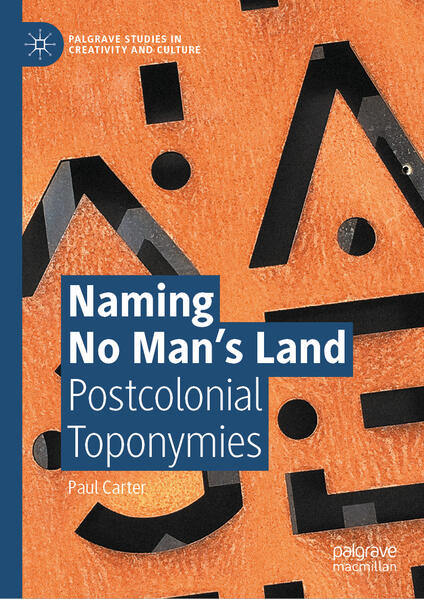
Zustellung: Do, 19.06. - Di, 24.06.
Versand in 1-2 Wochen
VersandkostenfreiBestellen & in Filiale abholen:
This book is a practice-based exploration of the politics and poetics of replacing colonial placenames with Indigenous ones. From a horizon of case-studies in Western Australia, the study develops a lively dialogue with international critical toponymy theory and with older etymological approaches to place renaming and legitimation. The author shows how renaming raises fundamental questions of meaning, reference and cross-cultural equivalence.
Recognising the 'sense of place' values that accrue to placenames, Carter argues that placenames have a creative as well as discursive function: they are talking points that bring places into being. For this reason, to decolonize toponymy involves a postcolonial poetics. Naming No Man's Land argues for a practical, community-shaped toponymic poetics that escapes from the binarist logic of imposition/erasure, showing that, when the principle that 'places are made after their stories' is followed, new creative mechanisms of co-existence can emerge. A must read for anyone engaged in postcolonial studies, creativity studies, cultural geography, sociolinguistics, historical ethnography, eco-criticism, environmental humanities, (Australian) Aboriginal studies, and related disciplines.
Inhaltsverzeichnis
Introduction: practising toponymic decolonisation. - Chapter 1 Relating Country: some recent Noongar placenaming projects. - Chapter 2 Proper Names: differences between Aboriginal and colonial toponymy. - Chapter 3 Naming and Renaming Places: politics, poetics and psychology. - Chapter 4 Decolonising No Man s land: writing back against the map. - Chapter 5 Making Place: yarning and the protocols of poetic geography. - Chapter 6 Anticipating arrival: migrancy and creative toponymy. - Conclusion: right ways of meeting, their naming and mapping.
Produktdetails
Erscheinungsdatum
20. September 2024
Sprache
englisch
Auflage
2024
Seitenanzahl
272
Reihe
Palgrave Studies in Creativity and Culture
Autor/Autorin
Paul Carter
Verlag/Hersteller
Produktart
gebunden
Abbildungen
XIX, 251 p. 4 illus.
Gewicht
468 g
Größe (L/B/H)
216/153/20 mm
Sonstiges
HC runder Rücken kaschiert
ISBN
9783031606878
Entdecken Sie mehr
Bewertungen
0 Bewertungen
Es wurden noch keine Bewertungen abgegeben. Schreiben Sie die erste Bewertung zu "Naming No Mans Land" und helfen Sie damit anderen bei der Kaufentscheidung.









